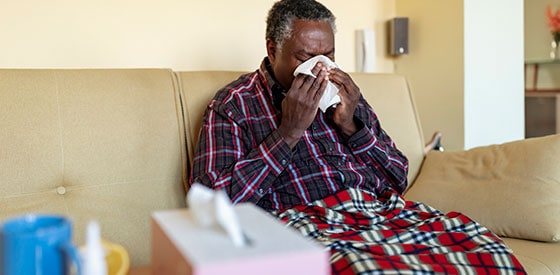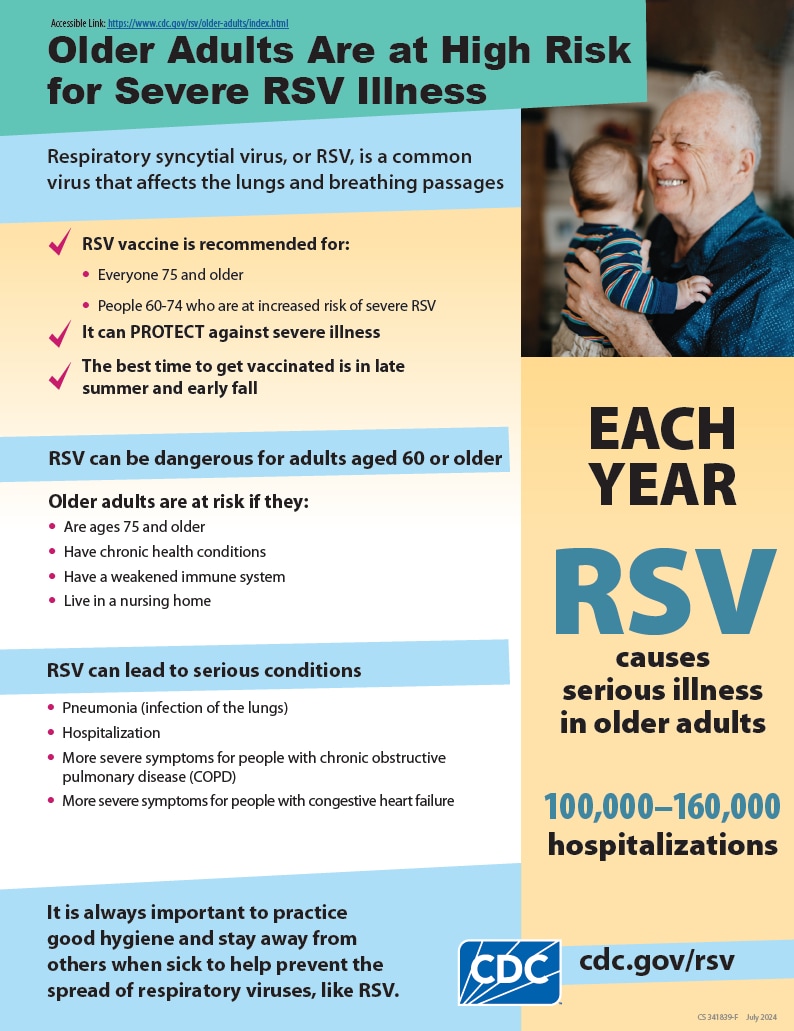What to know
- RSV can be dangerous for older adults, especially those who have certain medical conditions, are elderly or frail, or live in a nursing home.
- CDC recommends everyone ages 75 and older get an RSV vaccine.
- CDC recommends adults ages 60–74 who are at increased risk of severe RSV disease get an RSV vaccine.
- If you have already gotten an RSV vaccine, you do not need to get another one at this time.

Overview
RSV can be dangerous for certain adults. Each year, an estimated 100,000–160,000 adults ages 60 and older in the United States are hospitalized due to RSV. Adults at highest risk for severe RSV disease include:
- Adults ages 75 and older
- Adults with chronic heart or lung disease
- Adults with weakened immune systems
- Adults with certain other underlying medical conditions, including some adults with diabetes or obesity
- Adults living in nursing homes
For the complete list of risk factors for severe RSV disease, see RSV Clinical Overview.
Spotlight
Severe RSV
When an adult gets RSV, they typically have mild cold-like symptoms, but some may develop pneumonia (an infection in the lungs). Adults who get very sick from RSV may need to be hospitalized. Severe RSV can be fatal for some adults.
RSV can sometimes also lead to worsening of serious conditions such as:
- Asthma
- Chronic obstructive pulmonary disease (COPD) – a chronic disease of the lungs that makes it hard to breathe
- Heart failure – when the heart can't pump enough blood and oxygen through the body
Adults 60 and older who are at increased risk include those with certain chronic medical conditions, those who are elderly or frail, and those living in nursing homes.


